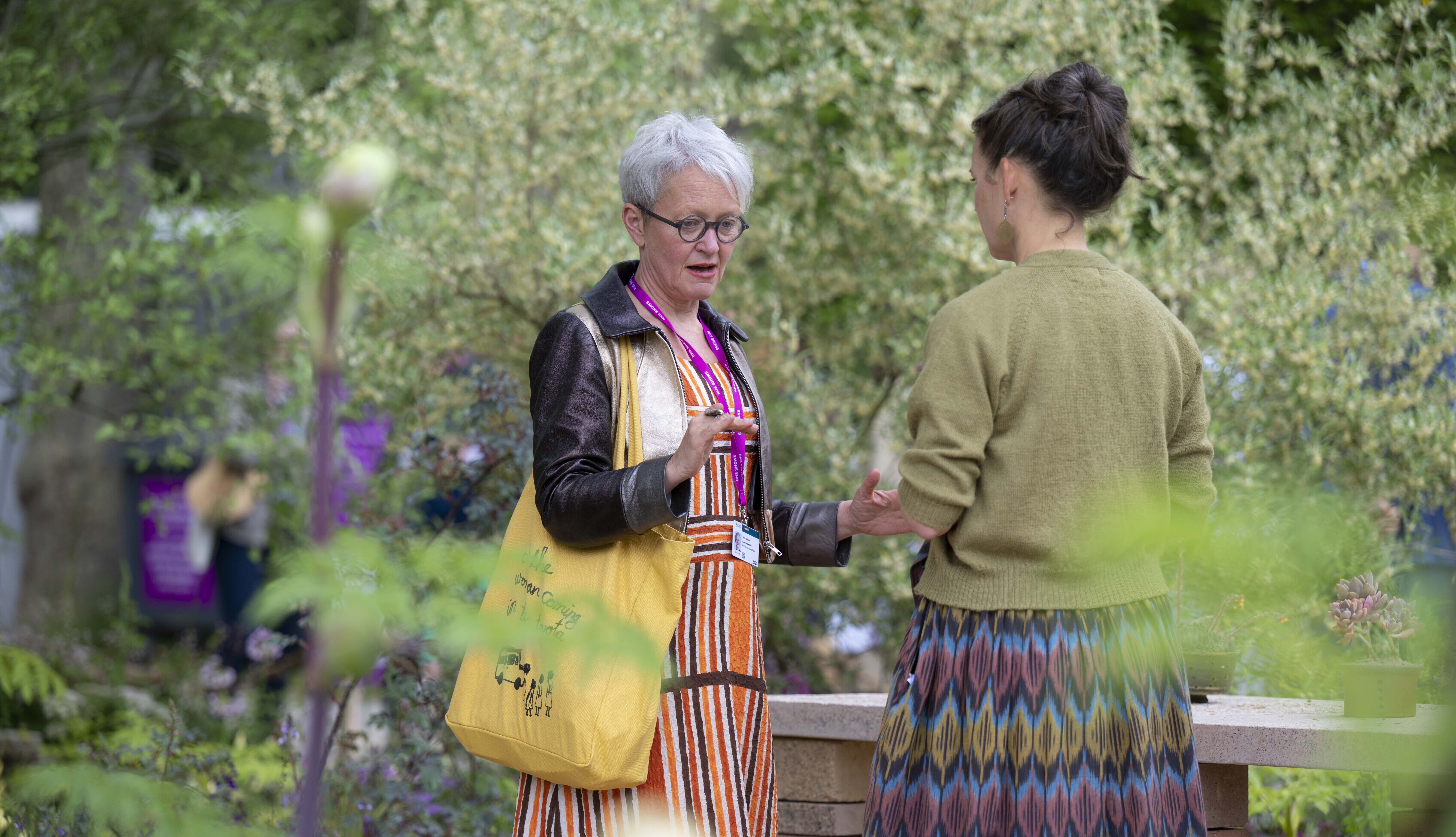Shared Roots
Nation-building begins in the garden.

I dislike speaking with strangers, which is one reason I have built my career around hiding behind the written word. My brief forays into sales, retail or otherwise, have met with unspectacular but decisive failure. So why did this last Saturday find me wearing a name tag, grinning nervously at people I’d never met? Because someone needed to man the native plants information table.
My county’s Master Gardeners chapter was having its annual plant sale, one of the group’s two or three big fundraisers for the year. Sitting beside the aisles of cone flowers and hostas and heirloom tomatoes, looking sallow under the ag center’s institutional fluorescent lights, ready to answer queries about the art, science, and mysteries of native plant cultivation, I hunkered.
The Master Gardeners program was started in 1978 as the community-oriented branch of the University of Maryland’s Agricultural Extension. (Similar programs exist at land grant universities across the country.) Its goal is to foster responsible land use and horticulture among homeowners. In practical terms, this means what is termed somewhat stylelessly “outreach”: running information tables at libraries and farmers’ markets, holding clinics on composting and seed-saving, helping to evaluate the potential runoff from people’s lawns.
It is admittedly pretty crunchy, pretty lefty. The program’s site has a land acknowledgement. The volunteers are librarians and school teachers, who, even in my part of the state, have the political leanings you’d expect. (One has a bumper sticker: “Courage is being a Democrat in C_____ County.”) It’s not my usual element.
Yet I work the little fundraisers, chatting with strangers. It’s cliché to say that American civic life is in tatters, there is no broadly shared culture, our public institutions are discredited and, increasingly, nonexistent, and so on. But it is a physical fact—an undeniable root in reality—that we all live in the same place, and that it is in our best interests to take care of that place. It is truly the lowest common denominator, but it is a place to stand. In Maryland, we occupy the same two or three large patches of dirt; we all share the Bay.
So here I sit, brainstorming pollinator gardens with people who wear nose rings and cannabis-leaf amulets and extolling the virtues of native grasses to nervous-looking people who are still wearing facemasks in the late spring of 2023. We all have an interest in not poisoning our waterways with increasingly expensive fertilizers; it’s not much of a shared thing, but there it is. The Southern Agrarians took their stand; I’ll take my seat, here behind the stacks of pamphlets on the ornamental uses of Joe Pye weed and switchgrass.
“Being a nation is, in the last resort, subjective; those who feel they are a nation and behave accordingly are one,” Enoch Powell observed. He hated America and Americans, not least because of the constant meddling in European affairs; he saw us as a basically colonial culture, incapable of self-definition without reference back to the Old World. On this point, he had an unlikely ally in Wendell Berry, who saw becoming natives as the mission of the American people.
“I have come more and more strongly to believe that the ultimate moral goal, even the moral necessity, of the American people must be to become the aborigines of the American land.… White Americans have for the most part remained the invaders and colonizers of the American continent,” Berry wrote in a review for 1971’s The Last Whole Earth Catalog. I reflect on this wistfully when I look in my front flower bed, which I rashly sowed with poppies last year, and which now supports little else. The dominator is now dominated, the colonist colonized. (Although I do still like poppies.)
Subscribe Today
Get daily emails in your inbox
Gardening using the flora found on this continent rather than kicking against the pricks to recreate European gardens—this is part of becoming a nation of our own. It is the same impulse behind the Founding generation’s arguments over which piece of native fauna should sit atop our flagpoles. (The turkey, in retrospect, would have been a better choice.) It is buffalos on nickels and an American Indian on the Capitol dome. Perhaps, between the coneflowers and the compost and the bison, our country can become a more primordially fated unity. In some future temporal clearing, the right-wing magazine editors and left-wing librarians will step forward and see a shared America.
Or we can continue being apart; perhaps not at each other’s throats, but living in a separate peace. We can grow meat in labs and order everything we need. Maybe some version of this will be truly conservationist (or preservationist). But it’s not much of a life, is it? And it’s certainly not much of an America.
So I guess I’ll have to keep talking to strangers—I mean to say, other Americans. Well, keeping any garden involves some unpleasant tasks.